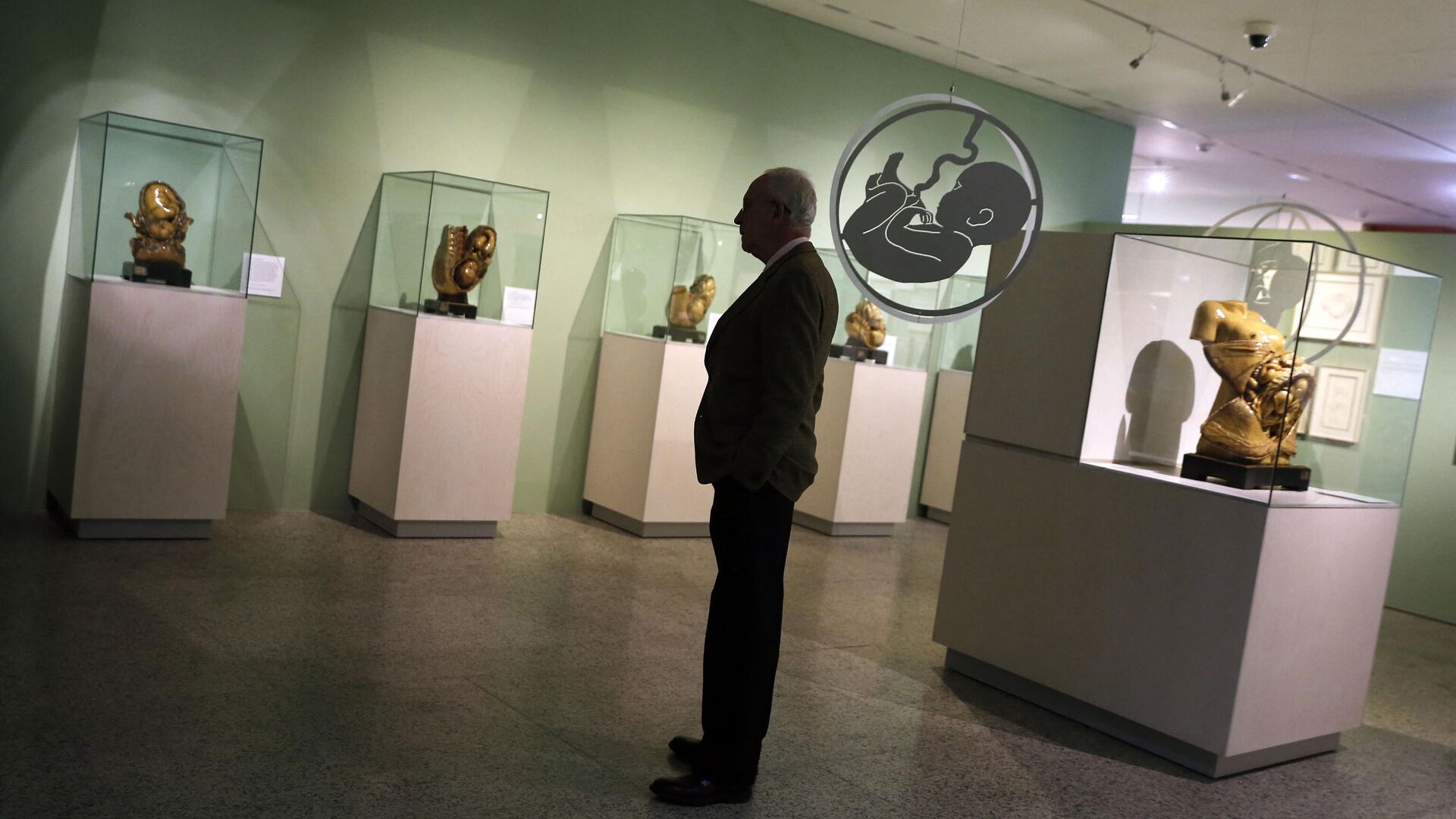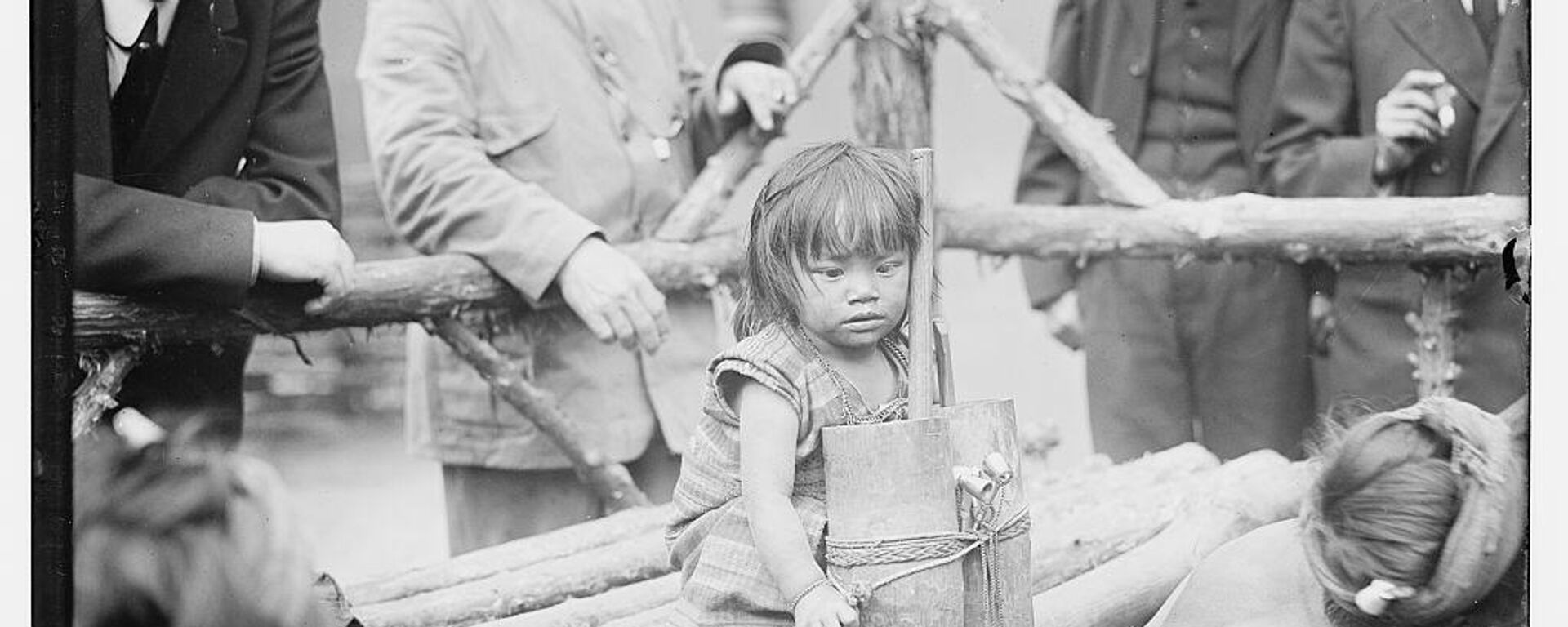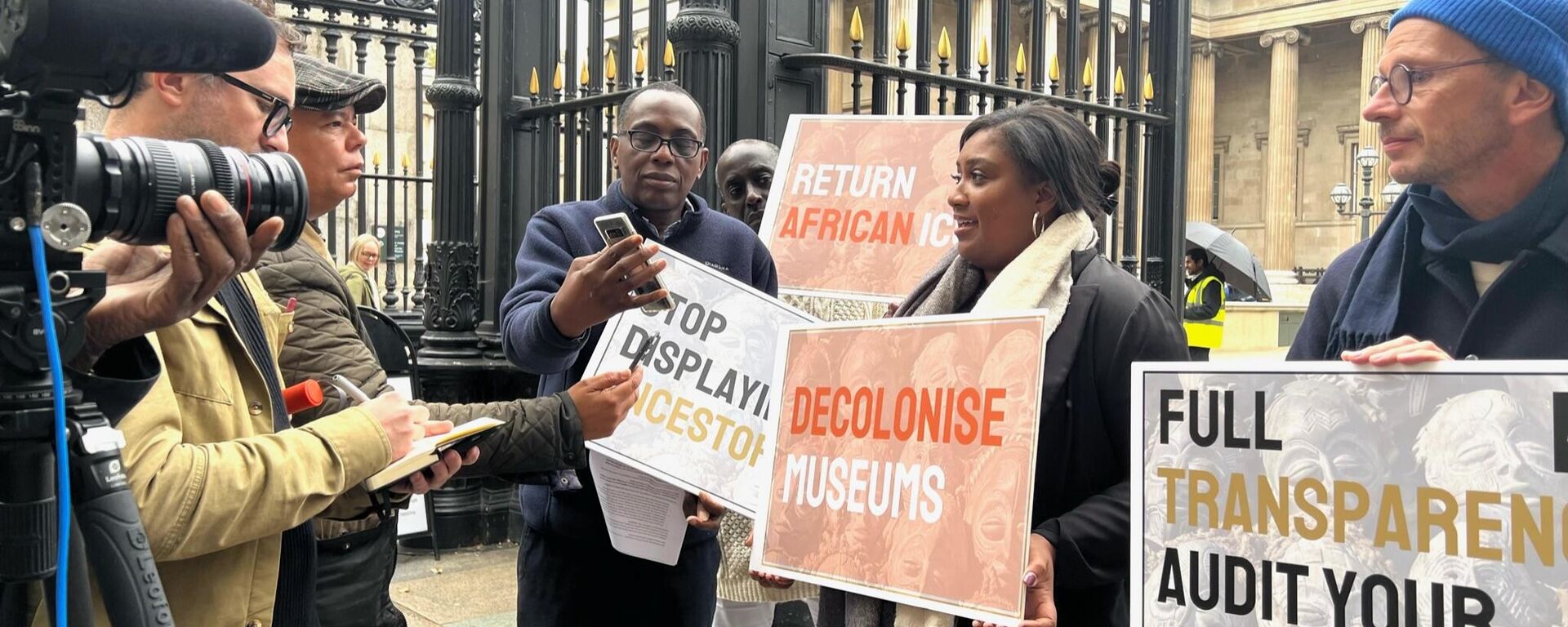https://en.sputniknews.africa/20231023/anatomical-museum-in-london-removes-access-to-remains-of-bambuti-baby-after-criticism-1063017285.html
London's Anatomical Museum Removes Bambuti Pygmy Infant Remains Amid Criticism
London's Anatomical Museum Removes Bambuti Pygmy Infant Remains Amid Criticism
Sputnik Africa
The Hunterian Museum, located in the Royal College of Surgeons of England building in London, has faced criticism in the past for owning human remains as part... 23.10.2023, Sputnik Africa
2023-10-23T11:43+0200
2023-10-23T11:43+0200
2023-10-23T12:12+0200
sub-saharan africa
united kingdom (uk)
museums
culture
colonialism
british colonialism
human
democratic republic of the congo (drc)
reparations
britain
https://cdn1.img.sputniknews.africa/img/07e7/0a/17/1063017609_0:160:3072:1888_1920x0_80_0_0_a77ca85f0ec5f46588e5e1bc4aab4b55.jpg
The remains of a stillborn Bambuti infant have been taken off the Hunterian Museum's list of objects available for medical research, British media has reported. The move was prompted by criticism from Nadifa Mohamed, an author shortlisted for the Booker Prize, and a production team of the forthcoming documentary on the history of "human zoos" in Britain. The novelist will present the documentary about a popular form of entertainment in the West during the 19th and early 20th centuries, in which African and Asian people were exhibited to the public in a way that is now widely seen as deeply racist.As part of the research, Mohamed and the documentary makers investigated the actions of explorer Colonel James Harrison, who in 1904 brought two women and four men from the Bambuti ethnic group, living in Africa, to Britain for a tour of the country. This kind of tour is now often referred to as a "human zoo."In 1906, one of the Bambuti women delivered a stillborn baby girl. The documentary team discovered that the remains of the infant are held in the Hunterian Museum at the Royal College of Surgeons in London. The remains were included in the museum's catalog and available for viewing upon request for medical research purposes.Mohamed told the media that the documentary team was appalled to discover that the museum had in its possession the remains of the stillborn infant. She reached out to members of the Bambuti tribe in the Democratic Republic of the Congo (DRC) who didn't know that the baby had been left in the United Kingdom and was in the museum's possession. According to their cultural beliefs, she explained, the baby cannot be considered at rest until she is buried in her native land.The writer stressed that there is no justification for the Hunterian Museum to keep the body, which was likely taken without consent and "treated as a plaything." After almost 120 years, the baby deserves the utmost respect, including a proper burial, she added.The Hunterian Museum stated that upon contact by the team, their staff removed the baby from its collection for medical research requests. However, the remains are still being held by the museum, and there are no plans for repatriation to the Democratic Republic of the Congo.A spokesperson for RCS England Museums told the media that, due to the sensitivity of this case and while the museum evaluates whether the Bambuti representative contacted by the documentary makers can take action, they will ensure "no permission is granted for bona fide medical research regarding the remains of the stillborn child."
https://en.sputniknews.africa/20230912/inhuman-entertainment-what-is-human-zoos-spread-in-western-countries-in-colonial-times-1062064803.html
https://en.sputniknews.africa/20231022/uk-politicians-activists-convene-for-first-conference-on-reparatory-justice-for-african-slave-trade-1062990978.html
united kingdom (uk)
democratic republic of the congo (drc)
britain
Sputnik Africa
feedback@sputniknews.com
+74956456601
MIA „Rossiya Segodnya“
2023
News
en_EN
Sputnik Africa
feedback@sputniknews.com
+74956456601
MIA „Rossiya Segodnya“
Sputnik Africa
feedback@sputniknews.com
+74956456601
MIA „Rossiya Segodnya“
united kingdom (uk), museums, culture, colonialism, british colonialism, human, democratic republic of the congo (drc), reparations , britain
united kingdom (uk), museums, culture, colonialism, british colonialism, human, democratic republic of the congo (drc), reparations , britain
London's Anatomical Museum Removes Bambuti Pygmy Infant Remains Amid Criticism
11:43 23.10.2023 (Updated: 12:12 23.10.2023) The Hunterian Museum, located in the Royal College of Surgeons of England building in London, has faced criticism in the past for owning human remains as part of its collection. Withdrawal of access to remains of an African descent baby reportedly followed a request from a team producing a documentary on "human zoos."
The remains of a stillborn Bambuti infant have been taken off the Hunterian Museum's list of objects available for medical research, British media has reported. The move was prompted by criticism from Nadifa Mohamed, an author shortlisted for the Booker Prize, and a production team of the forthcoming documentary on the history of "human zoos" in Britain.
The novelist will present the documentary about a popular form of entertainment in the West during the 19th and early 20th centuries, in which African and Asian people were exhibited to the public in a way that is now widely seen as
deeply racist.
As part of the research, Mohamed and the documentary makers investigated the actions of explorer Colonel James Harrison, who in 1904 brought two women and four men from the Bambuti ethnic group, living in Africa, to Britain for a tour of the country. This kind of tour is now often referred to as a "human zoo."
In 1906, one of the Bambuti women delivered a stillborn baby girl. The documentary team discovered that the remains of the infant are held in the Hunterian Museum at the Royal College of Surgeons in London. The remains were included in the museum's catalog and available for viewing upon request for medical research purposes.
Mohamed told the media that the documentary team was appalled to discover that the museum had in its possession the remains of the stillborn infant.
"I had a feeling that they would not have let this baby just be buried and put to rest," Mohamed is quoted as saying. "So I felt that they would have done something like this, and to know that the baby’s remains are still in the Hunterian and still available for research, when we first found out about it I was really disgusted."
She reached out to members of the Bambuti tribe in the Democratic Republic of the Congo (DRC) who didn't know that the baby had been left in the United Kingdom and was in the museum's possession. According to their cultural beliefs, she explained, the baby cannot be considered at rest until she is buried in her native land.
The writer stressed that there is no justification for the Hunterian Museum to keep the body, which was likely taken without consent and "treated as a
plaything." After almost 120 years, the baby deserves the utmost respect, including a proper burial, she added.
"The Hunterian Museum has often been advertised in things like Time Out as a quirky place to go on a first date, or for Halloween. I do have an objection to that, whether it’s a stillborn baby in a glass jar, I think we do need to think more deeply about how a lot of these human remains are kept, displayed, and treated," she said.
The Hunterian Museum stated that upon contact by the team, their staff removed the baby from its collection for medical research requests. However, the remains are still
being held by the museum, and there are no plans for repatriation to the Democratic Republic of the Congo.
A spokesperson for RCS England Museums told the media that, due to the sensitivity of this case and while the museum evaluates whether the Bambuti representative contacted by the documentary makers can take action, they will ensure "no permission is granted for bona fide medical research regarding the remains of the stillborn child."



